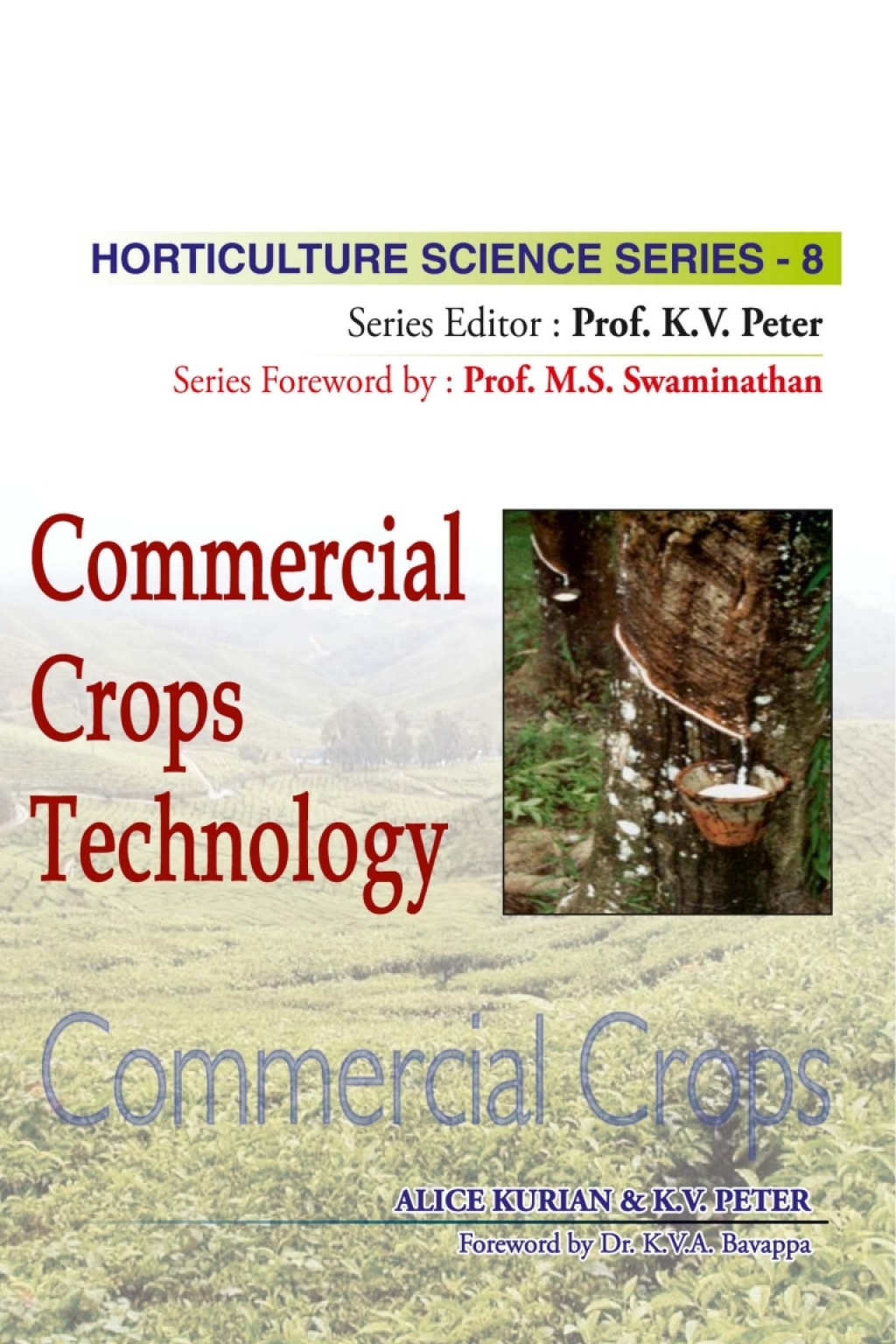Additional information
| Full Title | Commercial Crops Technology 1st Edition |
|---|---|
| Author(s) | Alice Kurian & K.V.Peter |
| Edition | 1st Edition |
| ISBN | 9789389130836, 9788189422523 |
| Publisher | NIPA |
| Format | PDF and EPUB |
Original price was: $267.00.$24.99Current price is: $24.99.
Access Commercial Crops Technology 1st Edition Now. Discount up to 90%
| Full Title | Commercial Crops Technology 1st Edition |
|---|---|
| Author(s) | Alice Kurian & K.V.Peter |
| Edition | 1st Edition |
| ISBN | 9789389130836, 9788189422523 |
| Publisher | NIPA |
| Format | PDF and EPUB |
Commercial crops are of significant economic and export importance to many developing and developed countries. These crops, which have a long history of cultivation and extensive research and development, have made significant technological advancements. It is essential to periodically review newly acquired knowledge in crop production and incorporate age-old experience. The book Commercial Crops Technology compiles and presents the latest technological advancements in nine crops grown on a plantation scale, including Areca Nut, Cashew, Cocoa, Coconut, Coffee, Oil Palm, Palmyra, Rubber, and Tea. The book is organized into ten chapters, with an introductory chapter that provides an overview of plantation crop production, including its importance, geographical distribution, soils, integrated nutrient management, crop protection strategies, cropping and farming systems, management of drought, organic farming, clean development mechanism, implications of IPR and strategies and recommendations.
The individual chapters on crops provide updated information on crop improvement, biotechnology, crop production and management, crop protection, and post-harvest handling, with an emphasis on integrated nutrient and pest management, organic crop production, and value addition. The chapters also provide basic information on the origin and distribution, production trends, botany, and R&D institutions for each crop. The books future outlook on these crops will enable readers to develop achievable programs and projects. The bibliography included in the book facilitates further reading. This publication will be beneficial to farmers, estate managers, extension workers, technologists, policy makers, researchers, and students who are associated with commercial crops.
